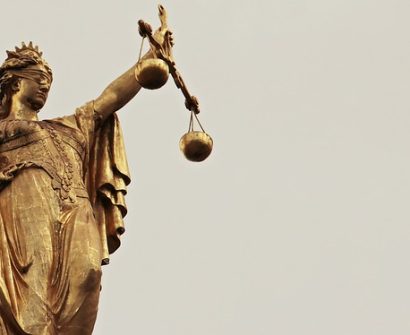
Every Indian citizen has the right to self-defense law in India, which allows them to defend themselves against any outside force that could cause them harm or injury. In everyday terms, it is using otherwise illegal means to defend oneself, another person, property, or against any other criminal activity.
Every free nation’s citizens ought to have the ability to defend themselves against any impending threat when official assistance is neither feasible nor available. This right should be interpreted in light of the state’s obligation to safeguard its citizens’ property. Every Indian citizen was allowed the right to use it for self-defense, however, many people frequently abuse this privilege by using it as a justification for committing crimes or other offenses. Consequently, there are significant limitations and constraints on this right to self-defense in India under section 96 to 106 of ipc.
Self-Defense IPC: Meaning
- According to Self-defense IPC, it is a natural right that shields people from injury or danger straight away. The legal framework in India pertaining to self-defense is governed by the Indian Penal Code (IPC).
- When someone uses reasonable force to defend themselves because they reasonably feel they are in immediate danger of harm, they can invoke self-defense as a defense or justification. The amount of force employed must match the threat being confronted.
Legal Provisions for Self-Defense IPC
The self defense ipc section 96 to 106 address the laws pertaining to private defense. A component of private defense is self-defense.
difference between self-defence and private defence under ipc: Key Differences
- Under right to private defence ipc the freedom to defend oneself, other people, or property against violence or illegal attack whereas under self-defense the right that every person has to defend themselves against impending injury or danger.
- The scope under private defence under ipc covers the defense of one’s own person, other people, and property whereas the scope under self-defense is primarily concerned with personal safety.
- Private defense is effective in circumstances where defending oneself, others, or property is required whereas self-defense is applied when someone has a good basis to think that their own safety is in immediate danger.
- Under private defense the protection extends to defending oneself, other people, and things whereas under self-defense it mostly serves as a personal defense of oneself.
Self-Defense in IPC Cases
Some of the important self-defense in IPC cases are as follows:
- In the case of Bhagwan Singh v State of Haryana, the Supreme Court decided that someone has the right to use any reasonable force to protect their property. The court further stated and ruled that any individual may assert the right to self-defense even if he has the chance to flee from the crime scene. This matter was resolved in accordance with Section 97 of the IPC.
- In the State of U.P. v Hari Chand’s case, the Apex Court ruled that an individual may only use force in self-defense when it is absolutely and necessarily required. Additionally, the court ruled that the right to self-defense is bound to the requirement that any force used be reasonable to the threat of damage caused. Section 96 of the IPC was used to resolve this case.
It is important that we as Indian citizens are aware of our rights, particularly with regard to the right to self-defense. These cases are particularly meant to be a reminder that while we have the defensive right to self-defense, it is important to exercise those rights within the boundaries of the law.
Legal Considerations in Self-Defense
- Self-defense usually applies when someone is in danger of being harmed. It indicates that there is no realistic chance to flee or seek assistance because the danger is immediate and unavoidable.
- The use of force in self-defense ought to be appropriate for the situation. It implies that the essential and appropriate response is required to repel or neutralize the immediate threat. Excessive force above what is required could make the self-defense claim untrue.
- The justification for self-defense is a reasonable suspicion that one’s safety is in imminent danger. This is a subjective belief that does not rely on hindsight, but rather on what someone with common sense would think in the same situation.
- Before using self-defense, people may be required by some legal systems to flee the scene or attempt to avoid the altercation if it is safe to do so. Some, on the other hand, support the “stand your ground” doctrine, which permits people to protect themselves without having to flee, particularly in their residences or public areas.
The Indian Penal Code’s concept of self-defense is essential to guaranteeing the security and safety of people and their belongings. It gives people the freedom to protect themselves and other people from impending damage or danger. It is crucial to keep in mind that this privilege has some restrictions and is not unqualified.
Clear rules on when and how to use the right of self-defense are provided by the IPC. The concepts of reasonableness, proportionality, and the lack of substitute remedies are emphasized. When using force, it must be appropriate for the threat being confronted, necessary, and end when the danger has passed.










